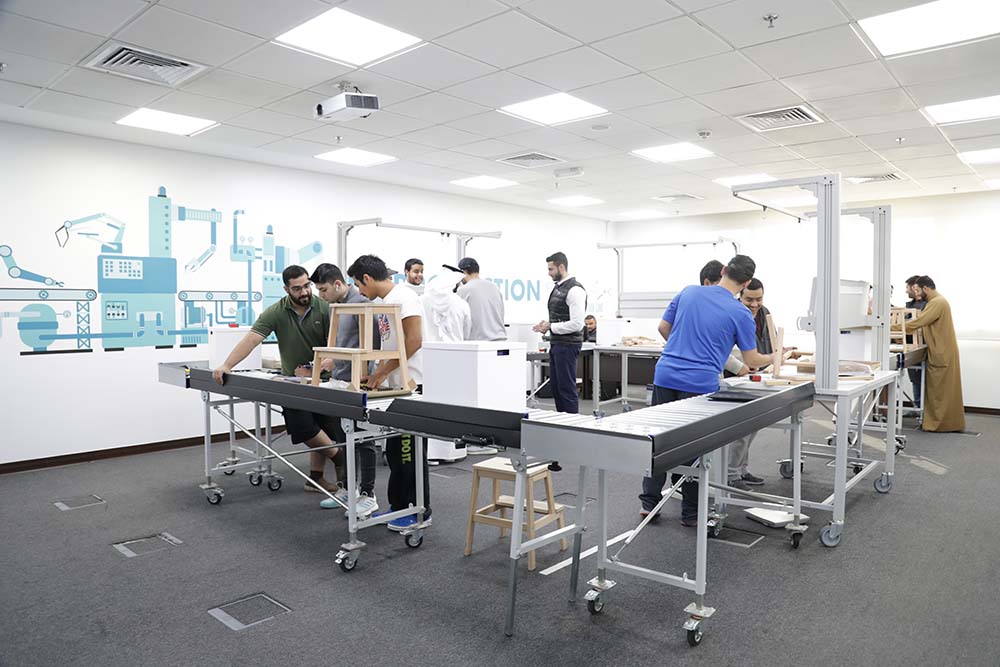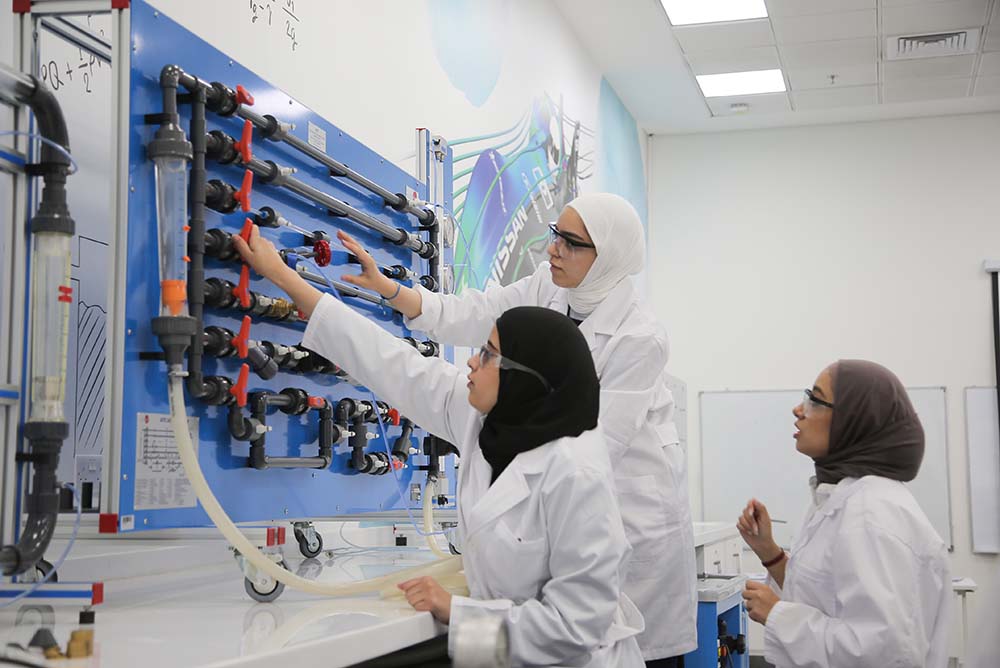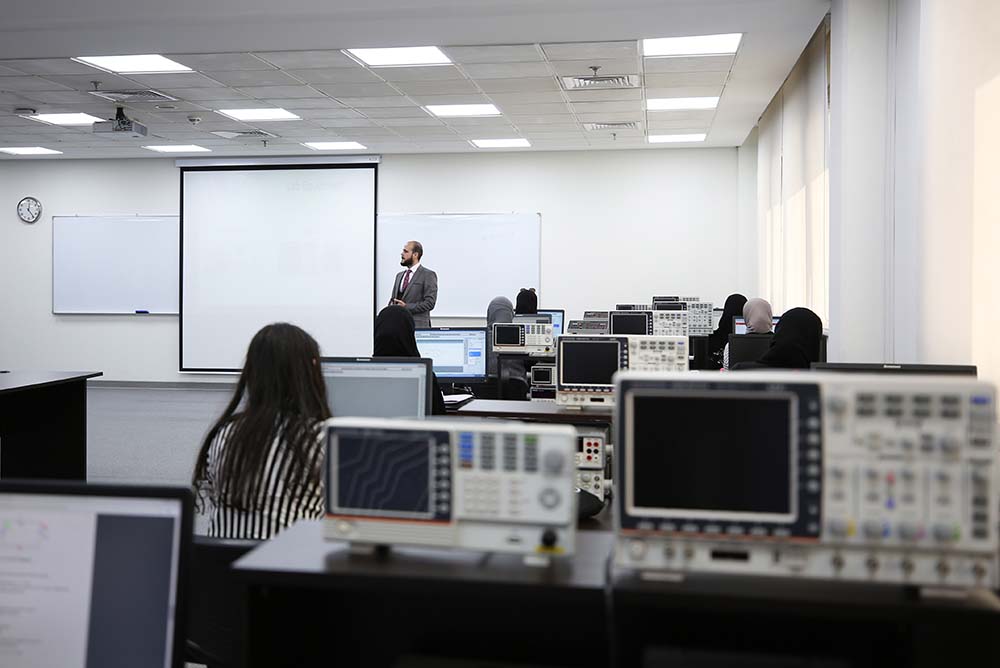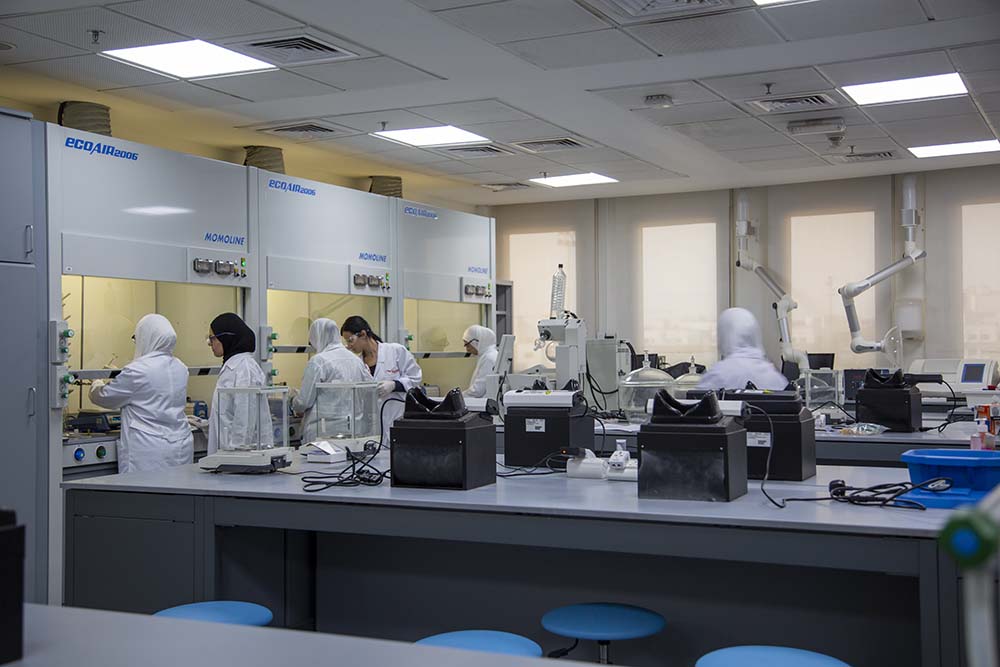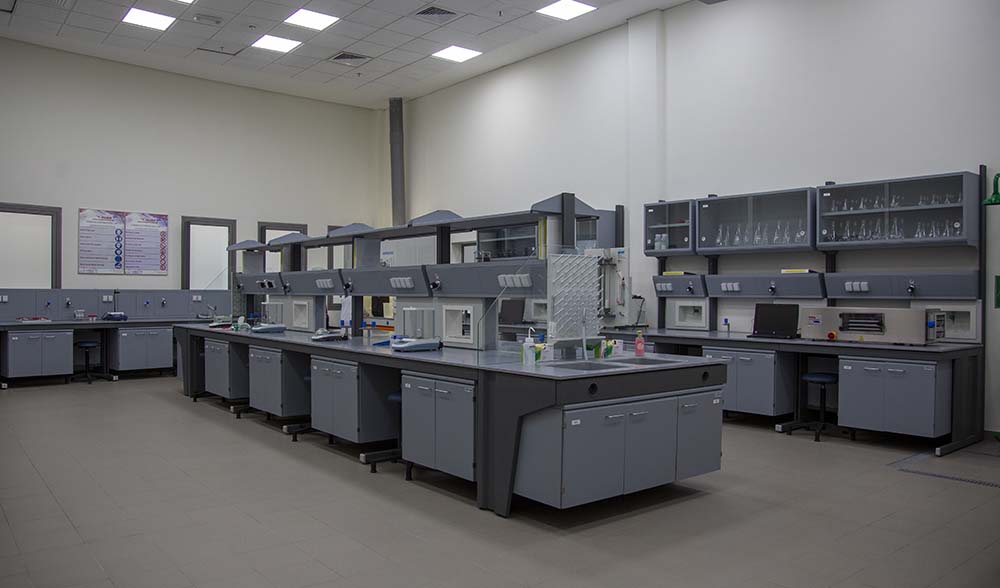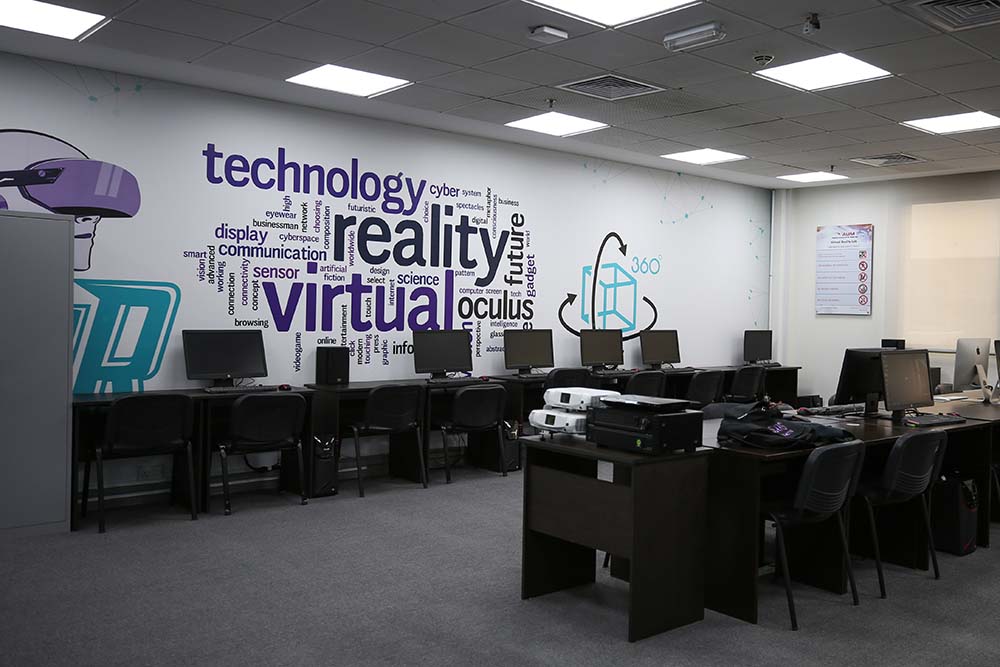
The Industrial Engineering department has four major labs that support the educational process. These labs serve Industrial Engineering courses, graduation projects and courses from other departments. All these labs are fully equipped with the latest experiment sets, tools and software required to provide students with a stimulating and challenging Industrial Engineering program focusing on “Ergonomics and Work Study”, “Production and Manufacturing Systems” and “Operations Research, Quality, and Statistics”. Students use the Ergonomics lab for anthropometric measurements, mental workload measurements and workplace design. In Decision Support Systems Lab, students build, solve Linear, nonlinear, and integer optimization models, and gain insights from these models to apply to real-life problems. The Simulation Lab trains students to model and simulate real life production and service stems, such as assembly plants, health care facilities and distribution networks, using several components of the ARENA software. In the Production Systems Lab, the students improve their understanding of concepts such as production dynamics, lean manufacturing, and productivity and practice designing workplaces.
List of IE Labs
- Ergonomics Laboratory
-
- Decision Support Systems Laboratory (A & B)
-
- Simulation Laboratory
-
- Production Systems Laboratory
-
- Computer Laboratories

